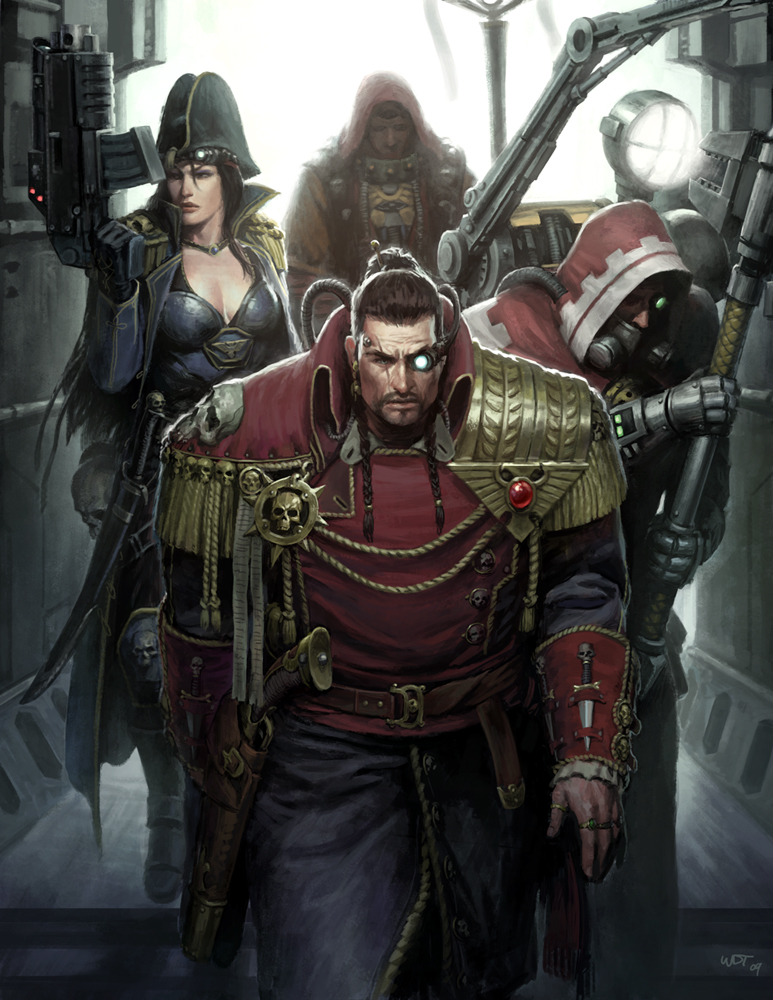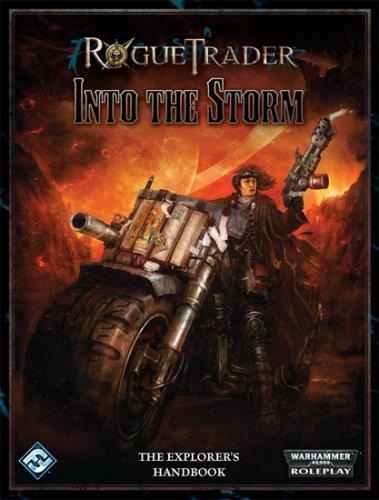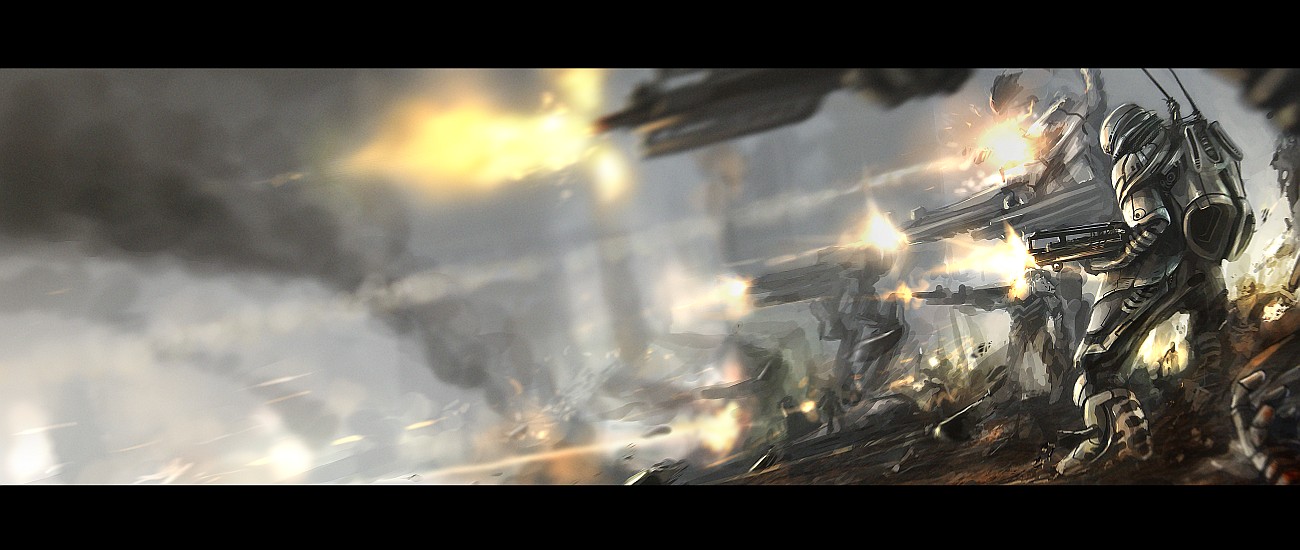
Well, after a number of disastrous rolls by the Navigator of our Explorer's crew, I had a choice to make. I could put them waaaay off course and roll on the table to determine what ill befell them. Or, I could use one of the three pre-scripted "events" that I had developed for just such an occasion before the campaign started.
Hmm. Which did I pick? It's not hard to guess.
The Space Hulk
The Explorers' ship was set far off course by the turbulent warp, but in its meanderings, their two vessels ran across something quite interesting - a
Space Hulk. As most people here know, a Space Hulk is a piece of cosmic mass, fused together with the hulls of numerous ships that were lost in the Warp at one point and time. The Space Hulk the crew found was exceptionally large, containing the carcasses of numerous battleships, cruisers, and frigates - not all of them human.
Essentially, I used the adventure found in the
Purge the Unclean adventure compilation as the basis for the encounter. Obviously, what I did and used was highly modified. However, the players still had the opportunity to pick up both the Luminous Reproach (an ancient Inquisitorial power sword) and the Liber Daemonica (a powerful text of forbidden lore).
The Black Ship
The basis of the Purge the Unclean adventure is that within a Space Hulk the Inquisition discovers the lost transponder signal of a famous Inquisitor's ship. And this Inquisitor was famed to have owned a very powerful daemon's bane weapon. Instead of telling the party that up front, however, I allowed them to sort of "discover" this as they went in.
The party had to deal with strange sightings. Things moving out of the corner of their eyes, and shadows that seemed to have a life of their own. This all culminated in the party winding up in an Inquisitorial Black Ship. It was only after a few rolls that the party slowly started to piece together where they were. A few additional rolls allowed the RT to realize that they were on the Dark Victory, a vessel for a famous Inquisitor who possessed a powerful sword - the Luminous Reproach. While the ship's name changed, many of the other details came from Purge the Unclean.
The Fight
Fortunately, the crew was smart enough to bring a platoon of armed men with them. Their platoon was half made up of their highly-trained honour guard and the other half was made up of guards from the crew of the Lucien's Folly - the ship whose crew they recused from destruction. Otherwise, fighting over 50 psykers might have been daunting. Even for a powerful Rogue Trader crew.
The way I staged it was with my familiar microcosm/macrocosm houseruling. A few statted out psykers represented the main threat, fought against by the PCs. Around these main threats, I placed some simple pente stones to represent the mob of pskyers all around them. I explained that the pente stones were only there to be a visual representation. They were not really "there" in terms of fighting, choosing targets, etc. The PCs' men were represented with dice in a similar fashion.
Before the battle could be finished, two Dark Eldar arrived with their warp beasts in tow. The battle became a three-way conflict.
In the end, Ergan Wright was injured. The crew had the rest of his men escort him back to the Ferral Wolf. To see how successful they were in their escort, I had the party make a series of rolls, not unlike an Exploration test. They fell short of the mark so I had them choose. Did the rest of the guard from the Lucien's Folly perish? Or would it be their precious honour guard? The crew chose to sacrifice their honour guard...which means, now, they their well-trained guardsmen are unfortunately gone for good.
Temptations and Weirdness
Not wanting to leave completely empty handed, the Explorers decided to look for the famous Luminous Reproach. After much searching, the Explorers encountered a number of weird events, like time-looping ghosts and corridors which seemed to appear and disappear.
One of these events was an opportunity to reclaim the Liber Daemonica. However, the party decided not to. If you remember, the Rogue Trader's rash actions had already resulted in the loss of their Astropath. He didn't want to be quite as reckless a second time around.
This is was pretty cool from a roleplaying standpoint for me. A character actually learning from his mistakes. Mistakes made while in character.
Real Consequences for Hard Things
What I really liked about this session was the fact that the characters attempted something difficult (raiding a space hulk), got something special for it (a very powerful daemon-bane sword), but paid a real price for it.
Typically, in a D&D situation, the party might go on a quest and enter a dungeon. The dungeon may be even really hard if the quest is big enough. But what usually happens is that the party survives (perhaps barely) and they get their reward. Thereafter, they are healed of all wounds. Even of some of them die...they can always be brought back. Usually there is very little long term effect from a difficult dungeon.
Here, however, we have a completely different situation. The loss of the honour guard means that the Arch-Militant lost good men. Men he hand picked and hand trained, which also reduces the stats of any of their personal guard as well. But out of this great loss comes a very interesting story - of how the remaining guard of the Lucien's Folly became the new honour guard of the Rogue Trader dynasty.
How cool is that? The honour guard in the Rogue Trader game aren't just some nameless shmoes who signed up for the job, but were chosen for an in-game reason and as a result of an in-game narrative.
Very cool indeed.




